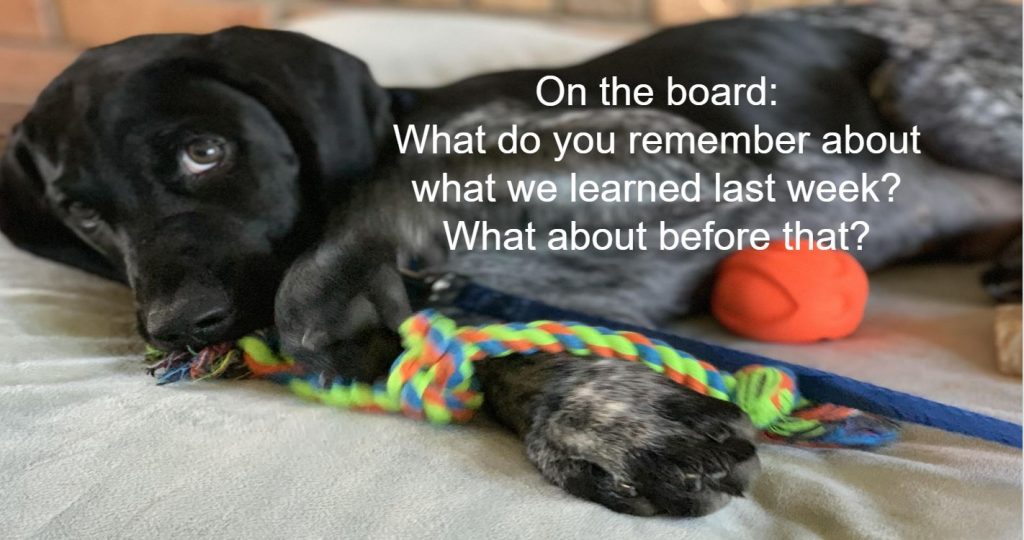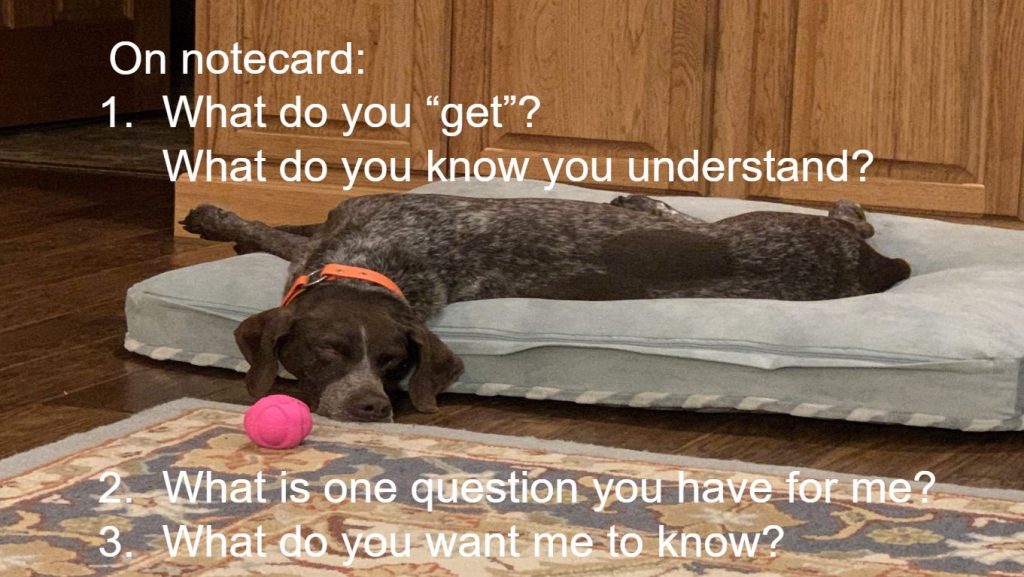When I’ve taught a class a dozen times, as I have the Teaching the Writing Process class that trains writing tutors, I tend to think I know what I’m doing. But if I don’t keep things fresh—and particularly if I don’t remember that I have a unique group of students each time—I run the risk of running off track. I imagine we all do. Here’s how I solved this concern recently, the first class of Week 5 of the semester.
I realized a couple of things:
- I wanted to continue to use what I’ve learned reading
Small Teaching by James Lang in our Center for Teaching and Learning’s
spring faculty learning community. Chapter 1 focuses on the benefits of
“retrieval.”—basically the concept that to learn things we need to practice
remembering it, retrieving it. - I knew I should check in with my students as a
best practice; we’re five weeks in. - I wanted to continue to work to make myself
“human” and accessible to students, a demographic that sometimes finds me
intimidating despite my efforts at humor and warmth. 🙂
So I jotted down a few questions I thought would be useful, things that would allow them to bolster their knowledge through retrieval and would give me information I could use to most effectively lead the students forward. Then I put the questions on slides so students could visually follow along. First, I wanted them to think back since I knew I’d rushed through a few tricky things last week. I wanted to find out what they remembered. And I wanted to them to crowdsource the info. With a photo of my puppy (my efforts at being human and approachable), I displayed this:?

The boards filled quickly with ideas such as the research
paper coming up, paraphrasing, style vs. correctness, and lots of other topics
we’d addressed. Great! But in addition to the benefit they would garner by
retrieving this information, as the professor I wanted to know more. I knew I
needed individual responses.
I love notecards. So the next prompt, pictured with my grown-up dog, asked them to write to me on notecards—an activity they’re familiar with because we’ve done it before.

I was tempted to feel this added 15 minutes of time took
away from what I needed to cover. But, no. I learned about what I needed to
reinforce in my lessons; I learned which students needed more individual
support from me; and overall, I opened the door wider for honest and open
dialogue between my students and me. I’ve been able to follow up with the class
as a whole and individual students. Our learning community is getting closer.
Ellen Sprague is an associate professor of writing in
the Center for Teaching and Learning, and she loves to try new teaching
strategies. She’s also the writing tutor program director.

One thought on “Retrieval and a bonus side-product—humanity”
Ellen,
I appreciated you sharing these thoughts on building a class community, and being intentional with adapting lesson plans to individual groups of students. Thanks for sharing!